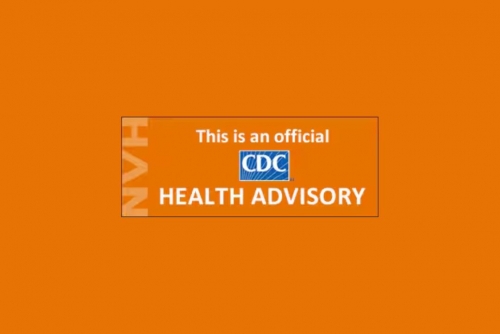Ebola Outbreak in Uganda: CDC Issues Health Advisory on Sudan Virus Disease
TDT | Manama
Email: mail@newsofbahrain.com
The Centers for Disease Control and Prevention (CDC) has issued a Health Alert Network (HAN) Health Advisory following the recent outbreak of Sudan Virus Disease (SVD) in Uganda, signaling heightened concerns about potential risks to public health. The outbreak, caused by the Sudan virus (species Orthoebolavirus sudanense), was confirmed by Ugandan health authorities in the capital, Kampala, on January 29, 2025.
Currently, no cases of SVD have been reported in the United States or outside Uganda. However, due to the ongoing viral hemorrhagic fever (VHF) outbreaks in East Africa, the CDC is urging heightened awareness and preparedness among U.S. healthcare professionals, public health departments, and travelers.
The outbreak originated in a 32-year-old male nurse who sought treatment at multiple healthcare facilities after experiencing severe symptoms, including high fever, chest pain, and bleeding from various body parts. He tragically passed away on January 29, and post-mortem samples confirmed the presence of the Sudan virus.
Travel Health Advisory for Uganda
The CDC has issued a Travel Health Notice Level 2: Practice Enhanced Precautions for individuals traveling to Uganda. Although there are currently no direct flights from Uganda to the U.S., travelers who have been in Uganda or passed through the affected areas should monitor their health for 21 days after departure. Symptoms of SVD typically begin with fever, aches, and fatigue, followed by gastrointestinal symptoms such as diarrhea and vomiting, as well as unexplained bleeding.
In response to the outbreak, the CDC recommends that travelers to Uganda follow precautions to avoid exposure, including avoiding contact with sick individuals, animals, and contaminated materials. Healthcare workers traveling to Uganda for professional duties are advised to observe infection control practices strictly and to monitor for symptoms post-return.
What Is Sudan Virus Disease?
Sudan Virus Disease is a type of Ebola disease caused by the Sudan virus, one of several viruses in the Orthoebolavirus family. SVD, like other Ebola strains, is characterized by a high fatality rate, especially if not diagnosed and treated early. The virus is spread through contact with infected bodily fluids or materials, and is not airborne. While there is currently no vaccine specifically for the Sudan virus, the FDA-approved Ebola vaccine is only effective against the Zaire strain.
The CDC emphasizes the need for early diagnosis to reduce mortality rates. In previous outbreaks, SVD has had a mortality rate of approximately 50%, though supportive care can significantly reduce the risk of death.
Recommendations for U.S. Healthcare Providers
The CDC urges U.S. clinicians to consider SVD when evaluating patients with compatible symptoms, particularly those who have recently traveled to Uganda or other affected regions. A thorough travel history is essential for identifying potential exposure to the virus. If a patient is suspected of having SVD, immediate isolation and testing are crucial to prevent the spread of the virus.
Healthcare workers must follow appropriate personal protective equipment (PPE) protocols when caring for suspected cases and should remain vigilant for symptoms for 21 days after their return from affected areas.
Steps for Public Health Departments
The CDC is working with state and local health departments to ensure that patients suspected of having SVD are swiftly tested and managed. Public health authorities are also coordinating with clinical laboratories to ensure proper biosafety measures are in place when handling specimens from suspected cases.
Global Awareness and Prevention
The public is urged to be cautious in regions with ongoing SVD outbreaks. Preventive measures include avoiding contact with sick individuals or animals, refraining from attending funerals or burials involving infected bodies, and avoiding visits to healthcare facilities for non-essential medical care.
In addition, travelers from affected areas should monitor their health closely for any symptoms, and self-isolate and contact healthcare providers if they begin to experience fever, vomiting, or unexplained bleeding.
As the CDC continues to monitor the situation in Uganda, public health officials worldwide are on alert to mitigate the spread of this deadly virus. Further updates will be provided as the situation develops.
For more information on Sudan Virus Disease, including travel advisories and health recommendations, visit the CDC website or consult local health authorities.
Related Posts

